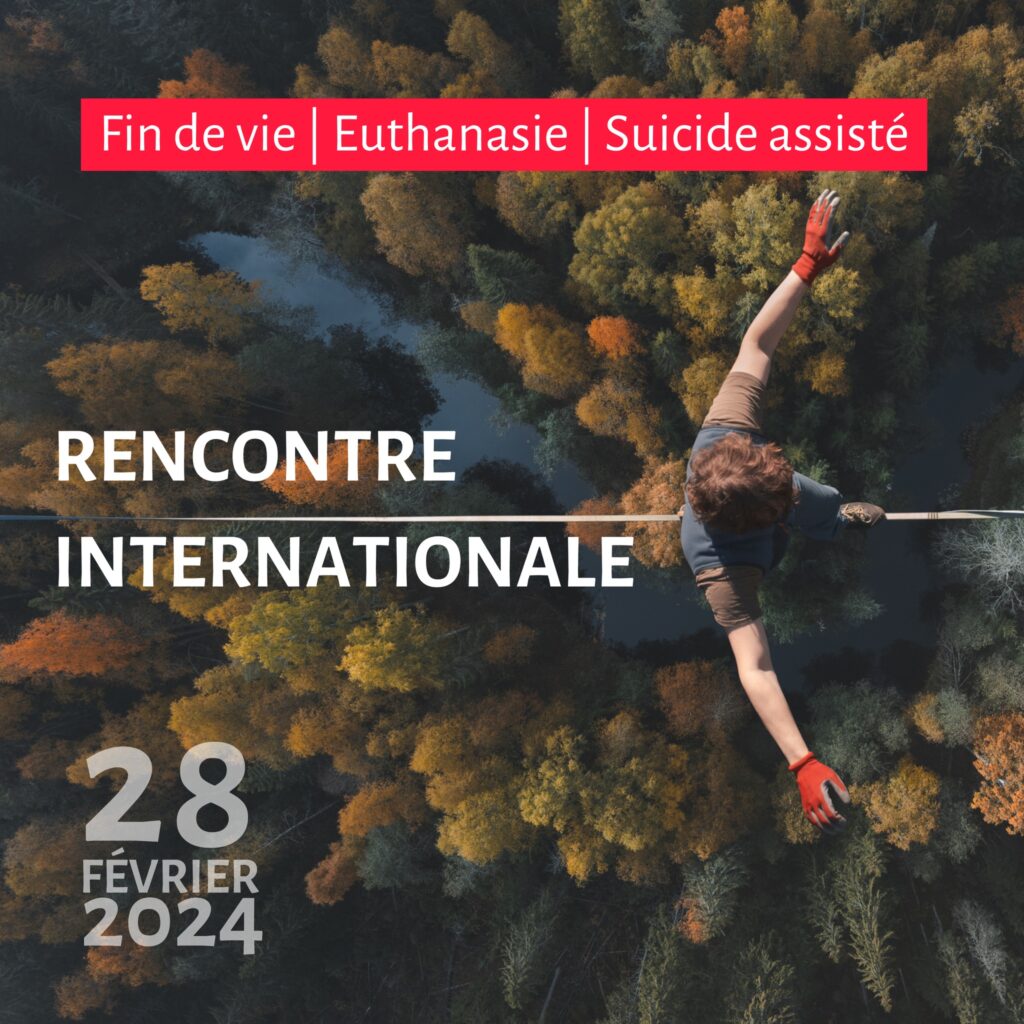Recap of the 2024 Paris 4-hour event

Nearly 10 years after the adoption of the End-of-Life Care Act in Quebec (June 5, 2004), we are very pleased to have co-organized an International meeting on end-of-life, euthanasia, and assisted suicide in Paris, last week. Here is a brief presentation of the event, with excerpts from the press release prepared by the event initiator, Alliance VITA:
As France considers legalizing euthanasia and assisted suicide, Alliance VITA, along with the European Institute of Bioethics (IEB) and the citizen network Living with Dignity, gathered on February 28th at the Maison de la Chimie, a dozen experts from Belgium, Canada, Switzerland, the Netherlands, as well as an American testimony for an international meeting on end-of-life issues. Each of them came to share the impact of euthanasia or assisted suicide practices in their respective countries. The legalization of euthanasia or assisted suicide was based on a triple promise in each of these countries, the credibility of which was assessed during the international meeting:
– Euthanasia and assisted suicide will only be allowed exceptionally.
– The support for vulnerable or end-of-life individuals will not be affected.
– This “new individual right,” which will not harm anyone, will have no consequences on others.
The cross-experiences confirmed, through three round tables—legal, medical, and social—how unsustainable these promises are. While legal frameworks vary from country to country, speakers from the Netherlands, Belgium, Switzerland, the United States, and Canada all testified to an inevitable broadening of eligibility criteria. Everywhere, the initially exceptional framework has deviated.
The complete press release and press kit summarize the four hours (!) of content presented by renowned experts. You can find all the interventions of the day (in French, unless stated otherwise) in video format on the website https://rencontreinternationalefindevie.org, featuring:
– Dr. Theo Boer and Dr. Paul Lieverse (Netherlands);
– Dr. Léopold Vanbellingen, Dr. Catherine Dopchie, and Mr. François Trufin (Belgium);
– Dr. Stève Bobillier and Dr. Johannes Irsiegler (Switzerland);
– Dr. Shane Macauley (United States), in English.
Canada was also well represented with the following speakers:
– Dr. Trudo Lemmens, professor of Health Law and Policy at the University of Toronto.
Explaining the surge in euthanasia practice in Canada?
Round table – Is it possible to regulate euthanasia and assisted suicide?
– Dr. Leonie Herx (via camera, in English), palliative care physician, clinical professor at the University of Calgary.
How do euthanasia and assisted suicide impact palliative care practice?
– Mr. Jasmin Lemieux-Lefebvre, coordinator of our citizen network (Living with Dignity).
What is the impact of euthanasia and assisted suicide on healthcare practices?
(participation from 1:11 to 4:33 and from 12:44 to 15:00)
Even though the event was entirely secular, Radio Notre-Dame took an interest, and Jasmin Lemieux-Lefebvre, coordinator of our citizen network (Living with Dignity) gave them a lengthy 22-minute interview.
– Mrs. Laurence Godin-Tremblay also contributed to the event with a short testimonial recording about the experience of her grandmother’s euthanasia.
Professor Trudo Lemmens rounded out the Canadian participation with his presentation entitled
The normalization of death as therapy
and his participation in the round table
What is the influence of euthanasia and assisted suicide on society?
Thanks to Mrs. Caroline Roux, the Deputy Director General of Alliance VITA and Director of VITA International, and her team for the invitation to actively participate in this day. We conclude with a notable quote Mr. Tugdual Derville, the spokesperson for Alliance VITA: “When the accelerated death of dependent, sick, or elderly people is presented as a solution, a good, a form of despair in the face of vulnerability inevitably creeps into the minds. And the first victims of this despair are the most fragile individuals, threatened by suicide – in all its forms – and euthanasia.”
MAR
2024
